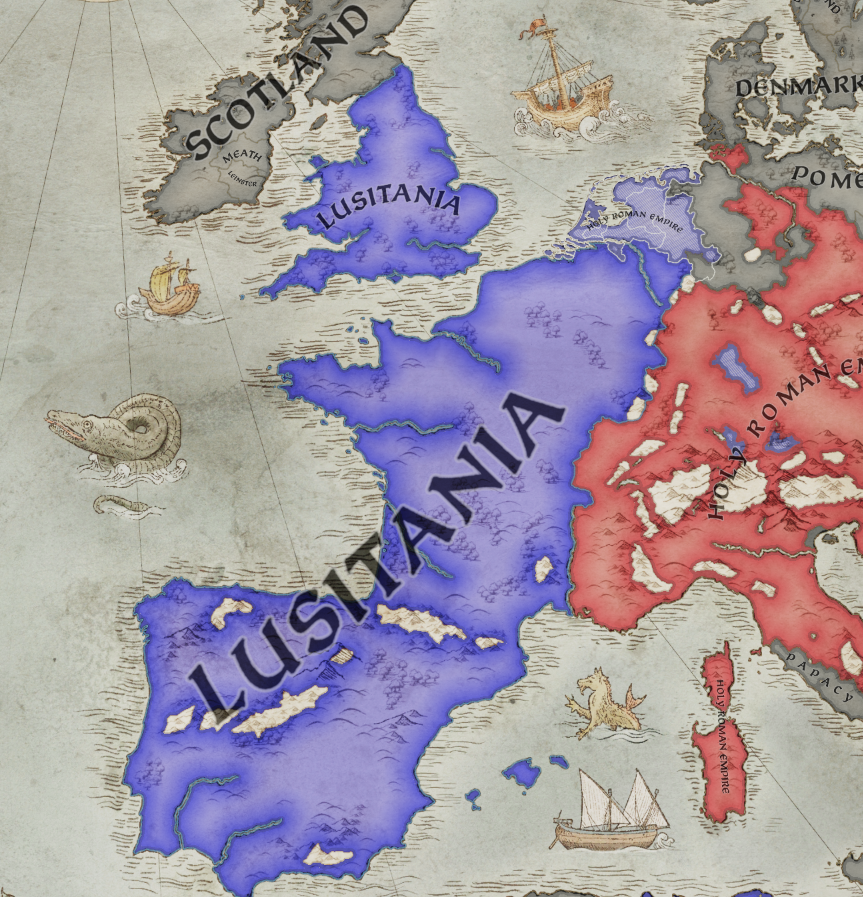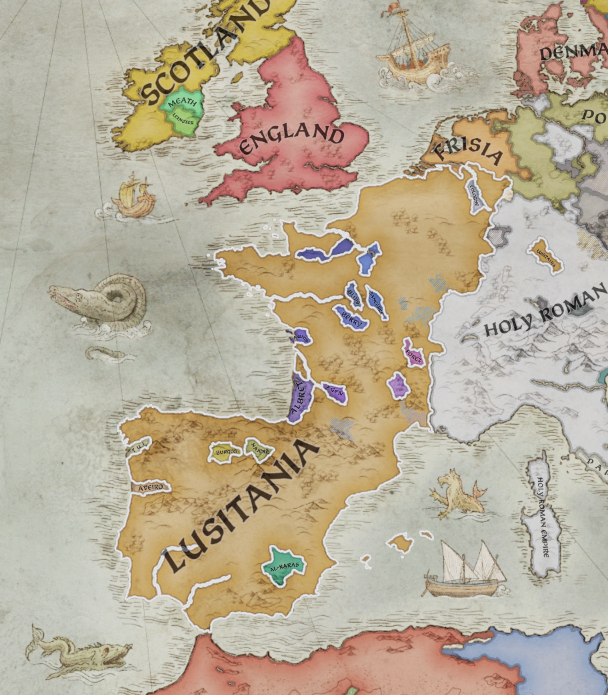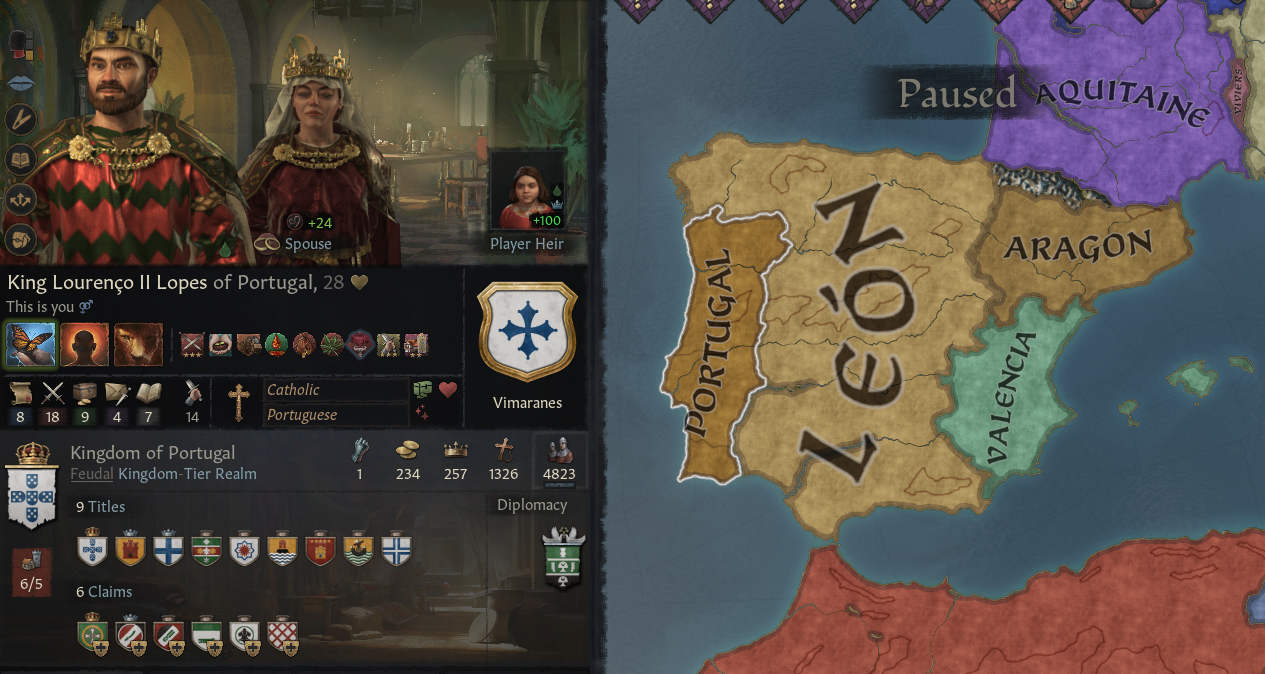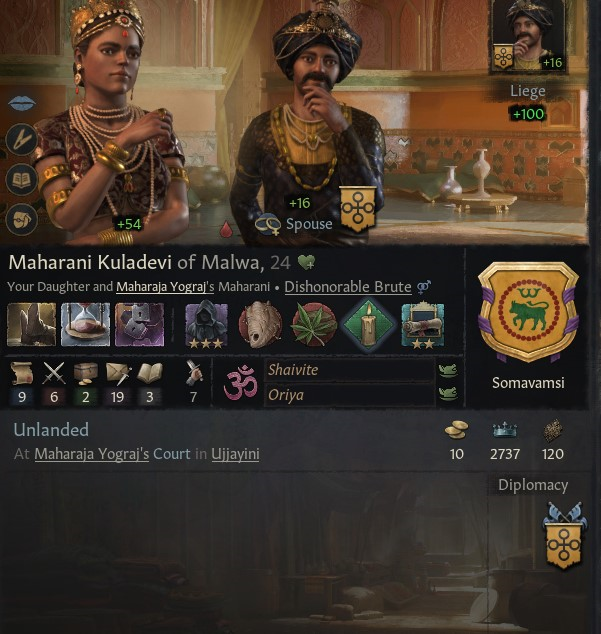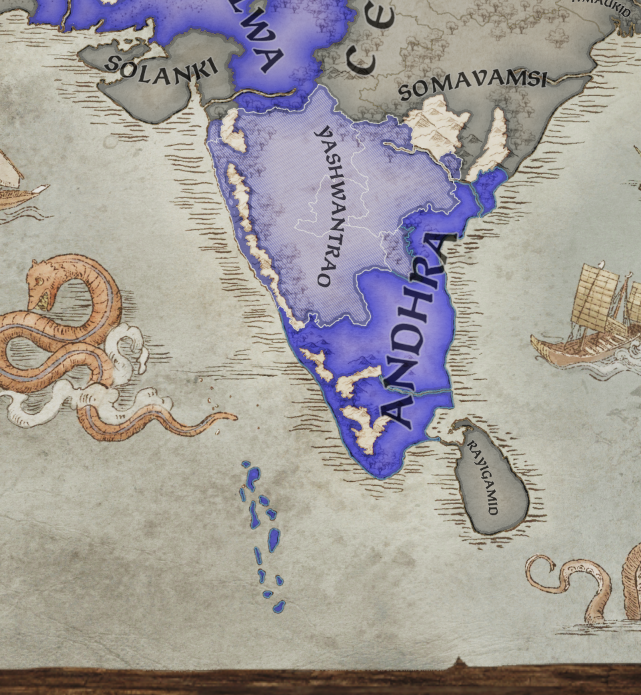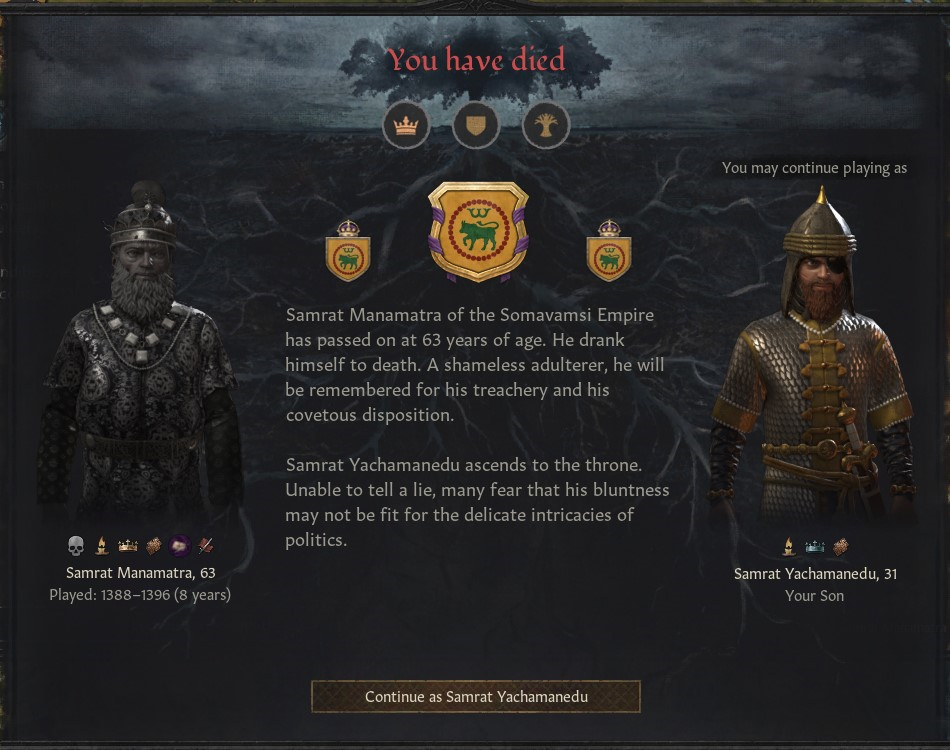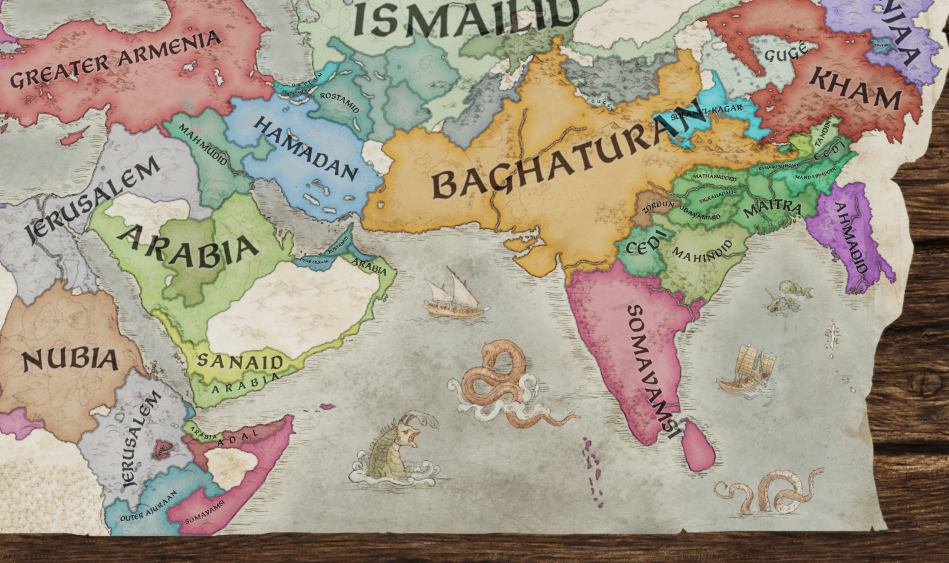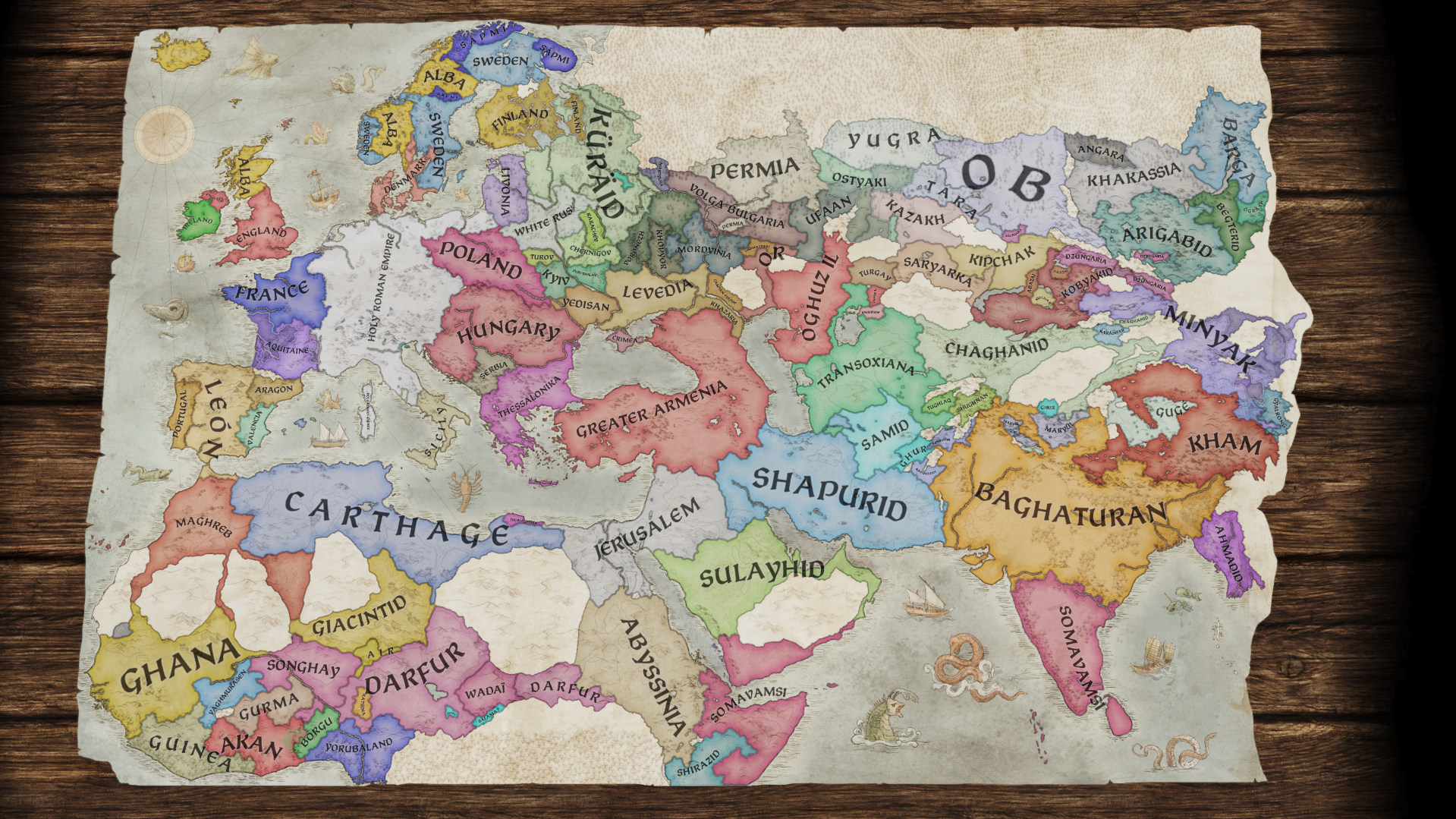Chapter III: House Somavamsi
Some stories of greatness begin with a tragedy. While Lourenco II continues to restore Catholicism in Portugal, in Southern India a queen looks at the dead corpse of his son, and an especially insulting message beside him, stating that "I will also come for you, my sweetheart, but I will use you to my enjoyment before brutally stabbing you and then gloriously returning to Tanjavur!" The Maharaja had took the life of the son of a queen who now barely sees good in life and drinks more wine than water. By all means, through her drunkenness, she is controllable, but only by those who know how to. Her husband tried to force his will on her, but she lost her mind and murdered him. Meanwhile the same Maharaja had claimed her land through inheritance and reigning in the local nobles, and our bitter and lunatic protagonist only exerted control over Udayagiri, and it's immediate vicinity.

Through her daughters though, she had secured the grace of the Paramaras and thus the entirety of Rajastan was her ally. Reckless as he is, in a fit of anger, she mobilised her troops and declared war on the killer of her son.
But before help from Rajastan would arrive, the castle was occupied and the war was over, signing a truce which made her a tributary of the Tamil Maharaja.
However, the corrupt man's luck had turned and he himself got assasinated, so Challeva had a chance to try again against the infant son of the Maharaja.
But due to the fact that the Paramaras had to quell a rebellion, a white peace was made, and what this Maharani was transformed into, was not a human anymore. She though had seemed to retain some minimal logical thinking, since she had decided to attack Tamilakam when they were under attack by Sinhalese rebels and the Somavamsi of Oriya.
This time the Paramara allies came, and the mad Maharani soon entered Tanjavur, deposing the former rulers entirely. She moved her capital to Tanjavur in order to commemorate the event. By that time, many belive that she had been acting independently. This though couldn't have been further from the truth.
Kuladevi Somavamsi was the most powerful human on the Indian subcontinent at the time, since she controlled the larger part of the Paramara diarchy from the bedsheets, while she controlled her mother, directing her fits of rage. Her descendants would be of the Somavamsi line, in exchange the other half of the Paramaras will annex Malwa upon the death of Yograj, her husband. To help her administer her domain, Kuladevi wedded her with Jetsan, a well-known administrator and a famous centenarian. While he died months after, he is important because he travelled the world in his 100 years, documenting important empires like Lusitania.
The mad woman soon followed after him... so Kuladevi inherited.
Ascending to the throne, she had immediately seen an opportunity: aside her, the mainland Deccan was ruled by two branches of the Kalyani Chalukya dynasty: the main branch and the Yashwantrao branch. The latter declared war between them, and while Kuladevi did pledge her support to the main branch, she did nothing against the invading Yashwantraos. This gave her the opportunity to later unify the Deccan in one war.
And after crushing a revolt and expanding the army massively, Kuladevi felt that it was time to subjugate the Yashwantraos.
With war won with the help of the Paramaras and this new professional army, Kuladevi declared herself the sovereign of the Deccan.
But in order to crown herself Samrajni, she had decided to embrace the Lingayat movement, lifting them from just another sect of Shaivite Hinduism to be a significant denomination on their own. Present in South India from 1260 AD, they are radically egalitarian and reject the Vedas, stating that the caste system must be abolished and that all humans are equal. They also place Shiva way over the other Hindu deities, making the denomination pseudo-monotheistic.
From this point on she often argued with her family in Orissa over who is the head of the dynasty. But, as fate would have it, the Somavamsis of Orissa were deposed and subjugated, giving her a perfect claim to the land and it's subjects.
After fighting them many times and occupying most of Orissa, Kuladevi could conquer the country, legitimising her as the head of the Somavamsi.
But her achievements were not only on the battlefield; she ushered in a reinassance for Deccan culture, merging all the subcultures into one big, and the two most frequently used languages of this culture became the Kannada and the Telugu language. She sponsored scientists, musicians and artists, and legends say that a commoner under her rule was as rich as a Ksathriya noble in North India, and that her treasury was so big that it constituted a grander and much bigger building than her palace itself. This cultural reainassance also had an impact on Indo-Aryan cultures living under her rule, often deccanizing them, like in the case of the Oriyas and the former homeland of the Bengali conquerors of Orissa Kuladevi took the land from.
But alas she had met her unglorious end, while traveling across her empire to visit her vassals, a wave had hit their ship so hard that they turned over and everyone, including Kuladevi, drowned.
Will Manamatra, someone who was raised in Ujjayini, be able to rule over this empire justly?




























